The Ultimate Tanzania Safari Packing Checklist(2025) – Don’t Miss a Thing
Packing for Safari Is Not Like Packing for a Beach Holiday
It’s tempting to think, “I’ll just pack my usual travel clothes – shorts, T-shirts, sandals, and done!” But let me tell you: a safari in Tanzania is a completely different animal. You’re stepping into wild, often remote environments, where the weather fluctuates, the terrain is unpredictable, and the conditions are nothing like your everyday city holiday or beach escape.
The sun here is powerful and relentless, especially in the middle of the day. But mornings and evenings? They can get surprisingly cold, even chilly enough to make you wish you’d brought that extra layer. And don’t forget about the dust. It’s a constant companion on dusty roads, game drives, and even while relaxing at camp. This dust will sneak into every pocket, every crevice of your luggage, and every fiber of your clothing if you let it.
Plus, unlike a city break where shops are never far away, in Tanzania’s national parks and reserves you’re often hours from the nearest store. Forget something critical like your passport or your malaria medication, and you could be facing an unexpected and stressful trip back to Arusha – and no one wants that.
This checklist is designed to keep you comfortable, safe, and prepared for those “Did you see that?!” moments that make safaris truly unforgettable. It’s practical, field-tested, and stripped of all fluff. Let’s get into it.
1. Travel Documents – The Essentials You Can’t Leave Behind
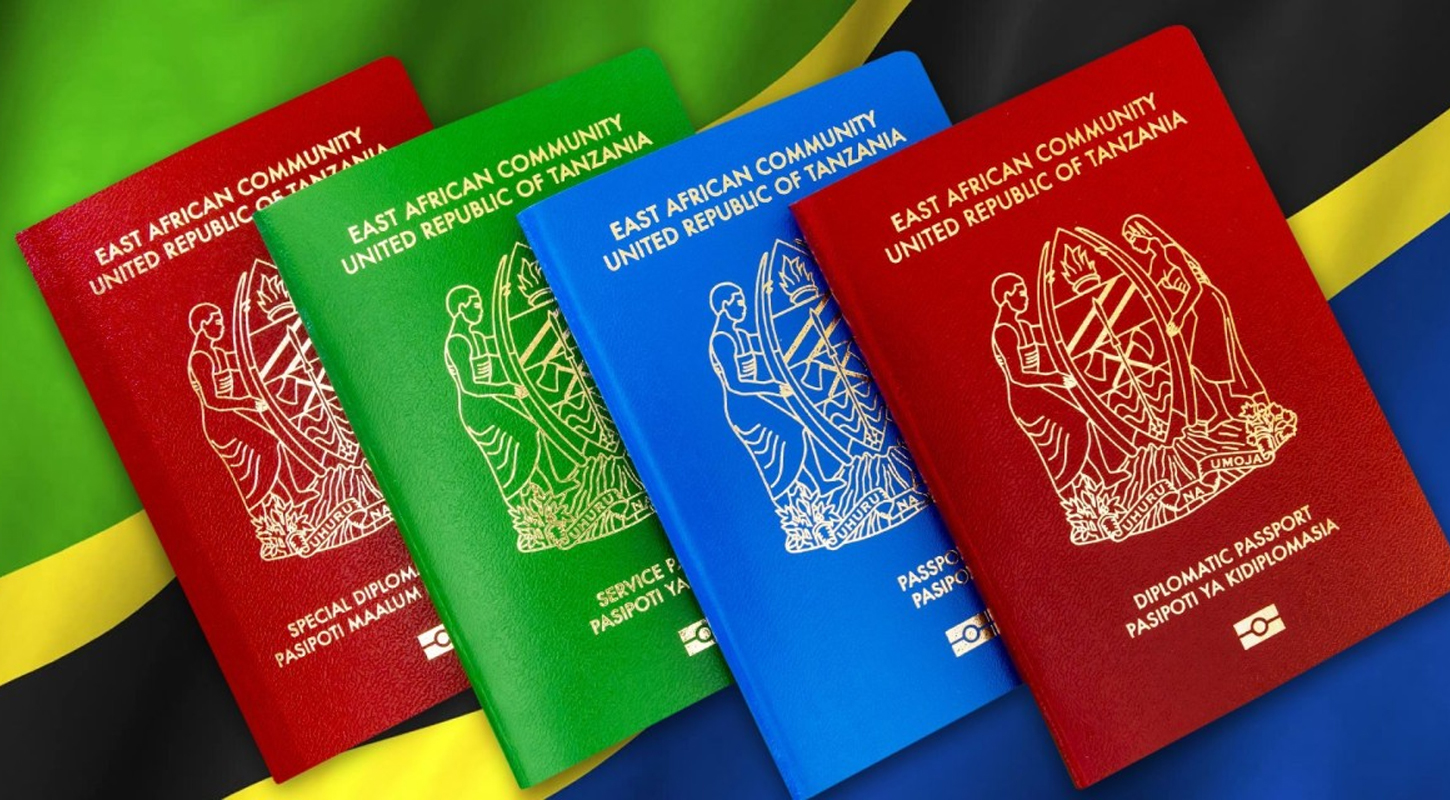
Your travel documents are your key to the entire experience. Without these, your journey can be over before it begins. It’s not glamorous, but it’s absolutely vital that you get this part right.
-
Passport: First and foremost, your passport must be valid for at least six months beyond your planned entry date into Tanzania. This is a firm rule, and border officials will check carefully. If your passport is close to expiring, get it renewed well before your trip.
-
Visa: Tanzania requires visas for most travelers. You can apply online in advance through the Tanzanian e-visa system or obtain one upon arrival in some cases, but the safer bet is to sort this out before you fly. Carry proof of your visa or application approval when traveling, as immigration officials will want to see it.
-
Yellow Fever Certificate: If you’re arriving from, or have recently traveled through, a country with a yellow fever risk, this certificate is a must-have. It’s part of Tanzania’s effort to keep visitors and locals safe. No certificate? No entry.
-
Travel Insurance: We all hope for smooth sailing, but emergencies happen – lost luggage, flight cancellations, medical needs, or unforeseen events. Having good travel insurance ensures you’re protected and can get help when you need it most, especially in remote safari locations where medical facilities can be limited.
-
Flight Itinerary: Immigration officers will ask to see your onward or return ticket. Keep a printed copy or have a digital version handy on your phone.
-
Emergency Contacts: It’s old-fashioned but important. Phones can run out of battery, get lost, or have no signal. A small printed list of important phone numbers (family, embassy, tour operator) could save the day.
-
Cash in USD: While many places accept cards, cash remains king in Tanzania’s parks and lodges. Carry small denominations for tipping guides and staff, and larger bills for bigger purchases. Make sure the bills are in good condition, as torn or old notes might be refused.
Helpful Hint: Before you leave, take clear photos of all these documents and email them to yourself. If anything goes missing, having digital backups will be a lifesaver.
2. Clothing – Choose Comfort and Practicality in Earthy Tones
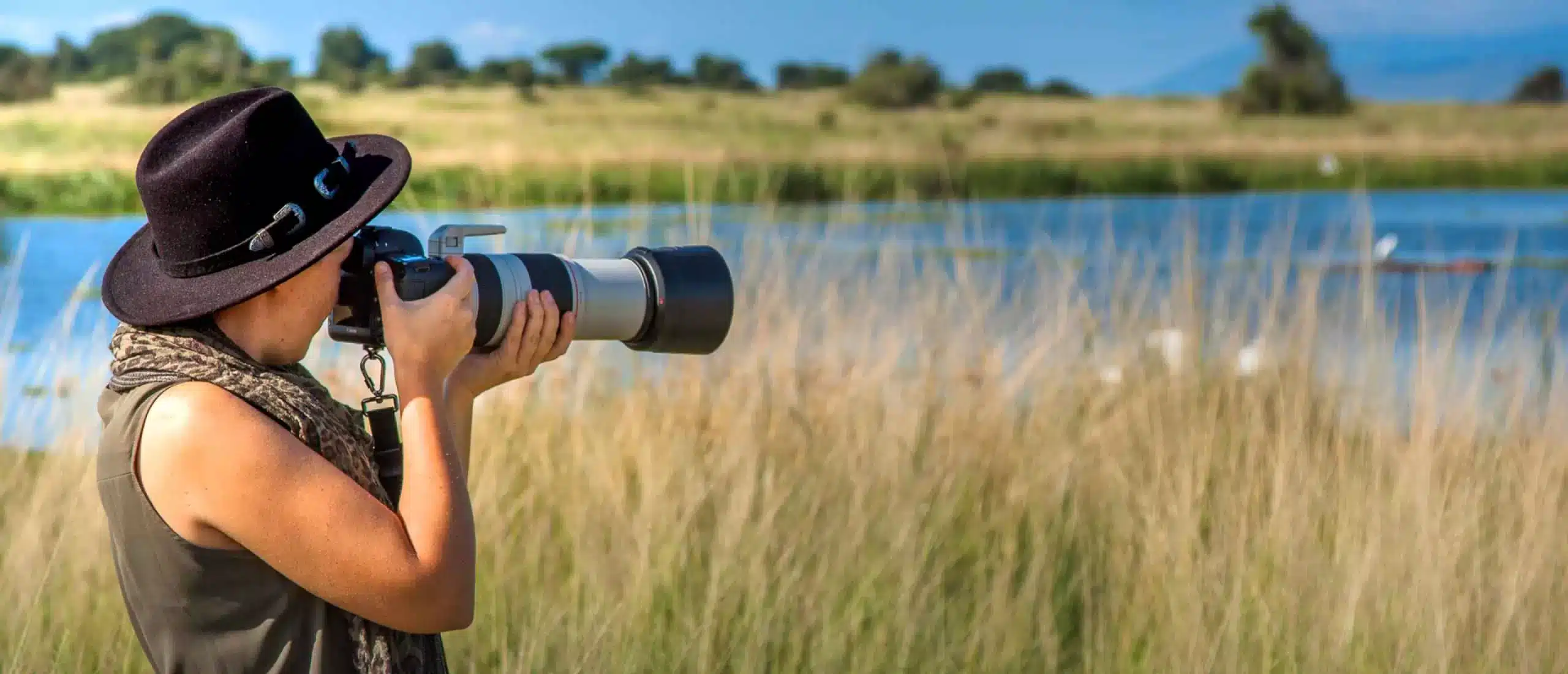
Safari clothing is all about functionality, comfort, and blending in with the natural surroundings. It’s not about style points (though you can still look great), but about being prepared for the environment.
-
Neutral Colors: Leave your bright whites, reds, blues, and bold prints at home. These colors either attract biting insects or pick up dust like a magnet. Khaki, olive green, beige, and other earth tones will help you blend into the landscape, so animals don’t spot you before you spot them.
-
Long-sleeve shirts: Lightweight, breathable long sleeves are your best defense against sunburn and insect bites, especially early mornings and late afternoons when bugs are most active. Look for shirts made with moisture-wicking fabric for maximum comfort.
-
Breathable trousers: Long pants protect your legs from thorny bushes, insects, and sun exposure. Quick-dry materials mean you can wear them comfortably even if they get wet or sweaty.
-
T-shirts and tank tops: For those warmer midday hours, having short-sleeve options will keep you cooler. Stick to the neutral palette for reasons mentioned above.
-
Fleece or light jacket: Early mornings and evenings can get surprisingly chilly in the bush, sometimes down to single digits Celsius (40s Fahrenheit). Having a warm layer makes all the difference between shivering and enjoying your coffee at dawn.
-
Waterproof jacket or poncho: African rains can be sudden and heavy. A lightweight rain jacket or poncho will keep you dry without adding much weight or bulk.
-
Wide-brim hat with chin strap: Protect your face, neck, and ears from the sun’s harsh rays. The chin strap keeps it from flying off on windy days or while bouncing along in an open safari vehicle.
-
Shorts: Comfortable shorts are perfect for relaxing around camp or when the temperatures rise. Just be mindful not to wear them during game drives where bugs and sun exposure could be an issue.
-
Scarf or buff: Dust is everywhere on dirt roads and during game drives. A scarf or buff can cover your nose and mouth when the dust gets thick, making breathing easier and keeping your clothes cleaner.
-
Swimwear: Many lodges and camps have pools or nearby swimming spots. Packing swimwear lets you enjoy a refreshing dip after a day of adventure.
Helpful Hint: Avoid bright white clothing – it picks up dust quickly, making you look less “safari ready” and more “walking laundry basket.” Dark blue attracts insects, so steer clear of that too.
3. Footwear – Keep Your Feet Happy and Protected
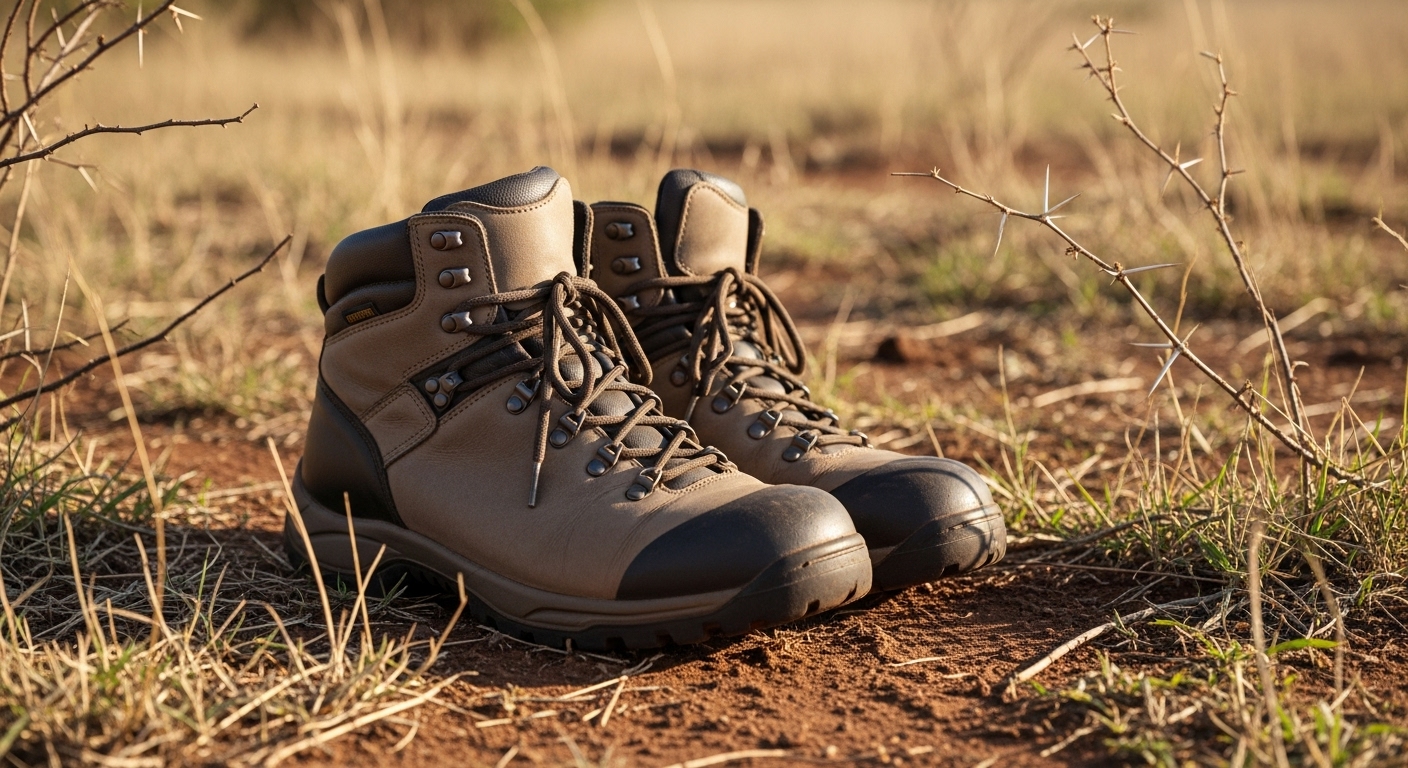
Your feet are your safari’s unsung heroes. They’ll carry you through game drives, bush walks, and camp evenings. Treat them well.
-
Sturdy closed-toe shoes or hiking boots: Good footwear protects your feet from rough terrain, thorns, and insects. Make sure your boots or shoes are well broken in before your trip — brand new shoes mean blisters, pain, and misery.
-
Sandals or flip-flops: Perfect for kicking back at camp, showering, or by the pool. Just don’t try hiking in them — that’s a recipe for injury.
-
Moisture-wicking socks: Avoid cotton socks, which hold moisture and cause blisters. Technical socks keep feet dry and comfortable during long days.
Your feet will thank you, and you’ll get more out of your safari when you’re not distracted by discomfort.
4. Safari Gear – See and Capture Every Moment
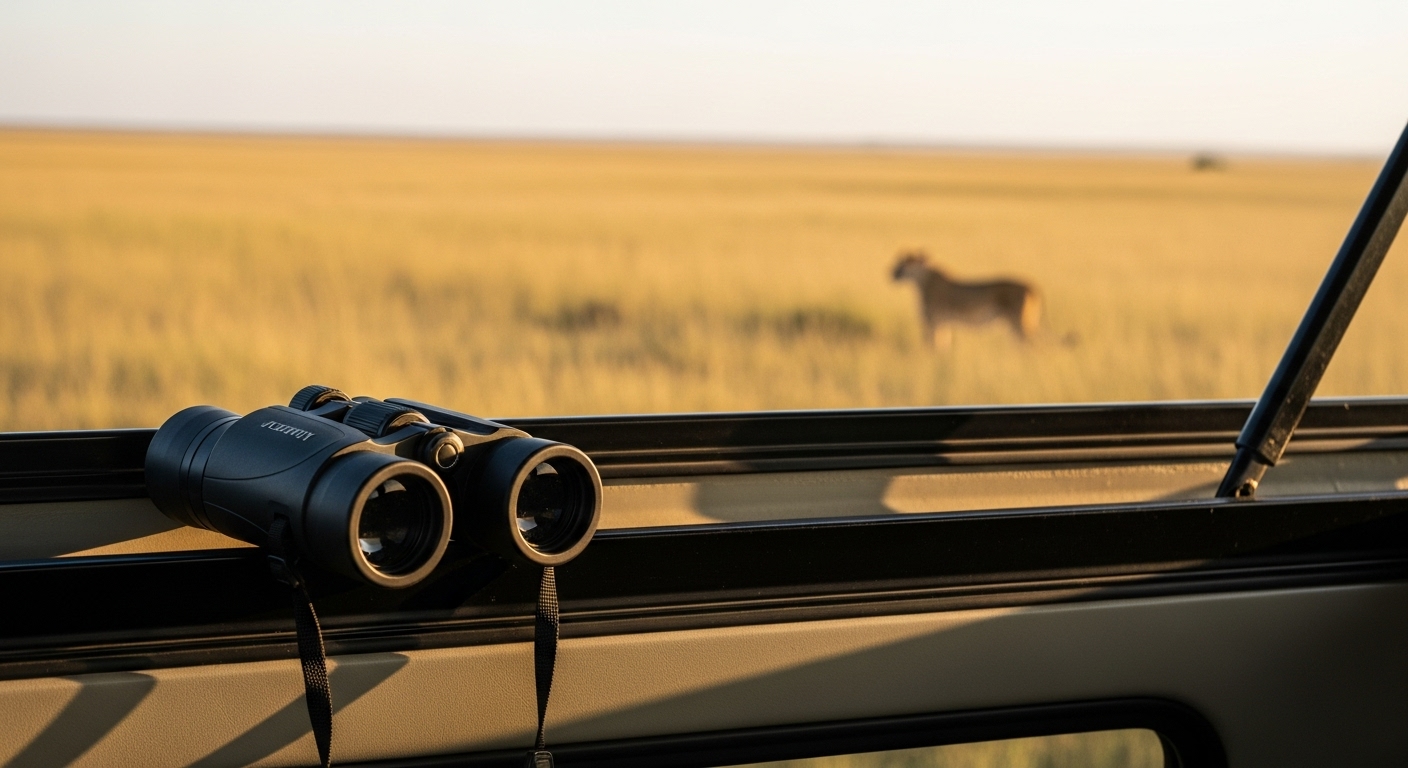
Wildlife waits for no one. Your gear needs to be ready to capture and enhance every magical moment.
-
Binoculars: Even the best cameras can’t replace the thrill of spotting a distant lioness, elephant herd, or rare bird before anyone else. Binoculars bring the bush closer.
-
Camera and spare batteries: Wildlife moments are fleeting. Having a good camera with extra batteries ensures you don’t miss the shot because your battery died. Charge and carry backups.
-
Extra memory cards: You’ll be surprised at how many photos and videos you take – and you don’t want to run out of storage at a crucial moment.
-
Daypack: Carry daily essentials comfortably: water, snacks, sunscreen, camera, and personal items. A good daypack distributes weight evenly and keeps hands free.
-
Reusable water bottle: Hydration is key in Tanzania’s heat and dry environment. Using a refillable bottle reduces plastic waste and keeps you healthy.
-
Headlamp or flashlight: Camps are very dark at night. A reliable light source helps you navigate safely without fumbling.
Helpful Hint: A beanbag camera stabilizer fits perfectly on safari vehicle windows or seats and steadies your shots far better than a tripod, which can be bulky and impractical.
5. Health & Safety – Your Portable First Aid Kit
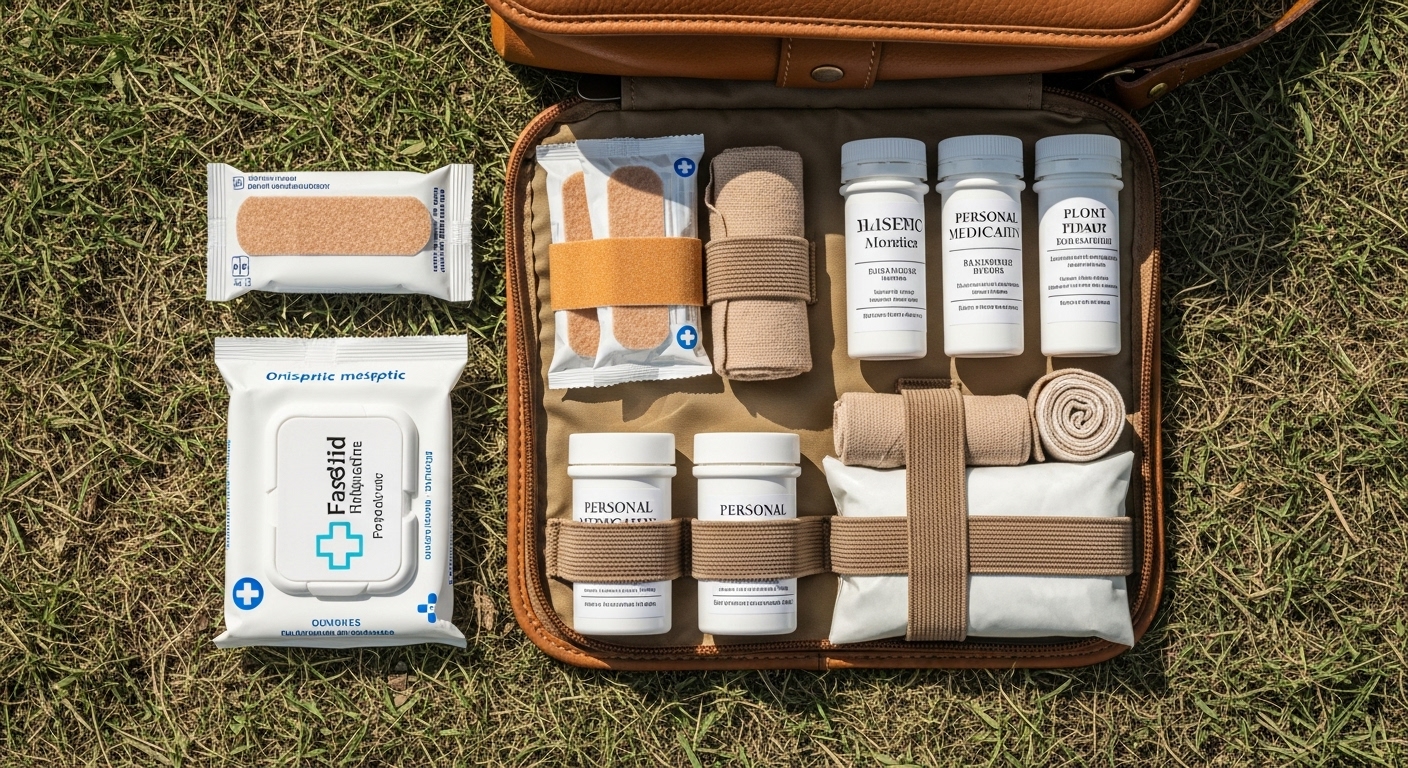
You’ll be far from pharmacies and hospitals for much of your trip, so bring your own health essentials.
-
Prescription medications: Bring enough for the entire trip, in their original packaging for easy identification.
-
Basic first aid kit: Include plasters, antiseptic wipes, bandages, and any personal medications. It’s great to be prepared for minor cuts, scrapes, or insect bites.
-
Painkillers: Ibuprofen or paracetamol can help with headaches, muscle aches, or discomfort from bumpy rides.
-
Anti-diarrheal medication: Traveler’s tummy happens. It’s best to be prepared rather than caught off-guard.
-
Insect repellent with DEET: This is non-negotiable. Protect yourself from malaria and other insect-borne illnesses by applying repellent diligently.
-
Sunscreen SPF 30+: The African sun is intense. Reapply often to prevent painful sunburns.
-
Lip balm with SPF: Often overlooked, but dry, cracked lips are no fun.
-
Hand sanitizer and wet wipes: Good hygiene helps prevent illness and keeps you feeling fresh, especially when running water isn’t always available.
6. Comfort & Extras – Little Things That Make a Big Difference
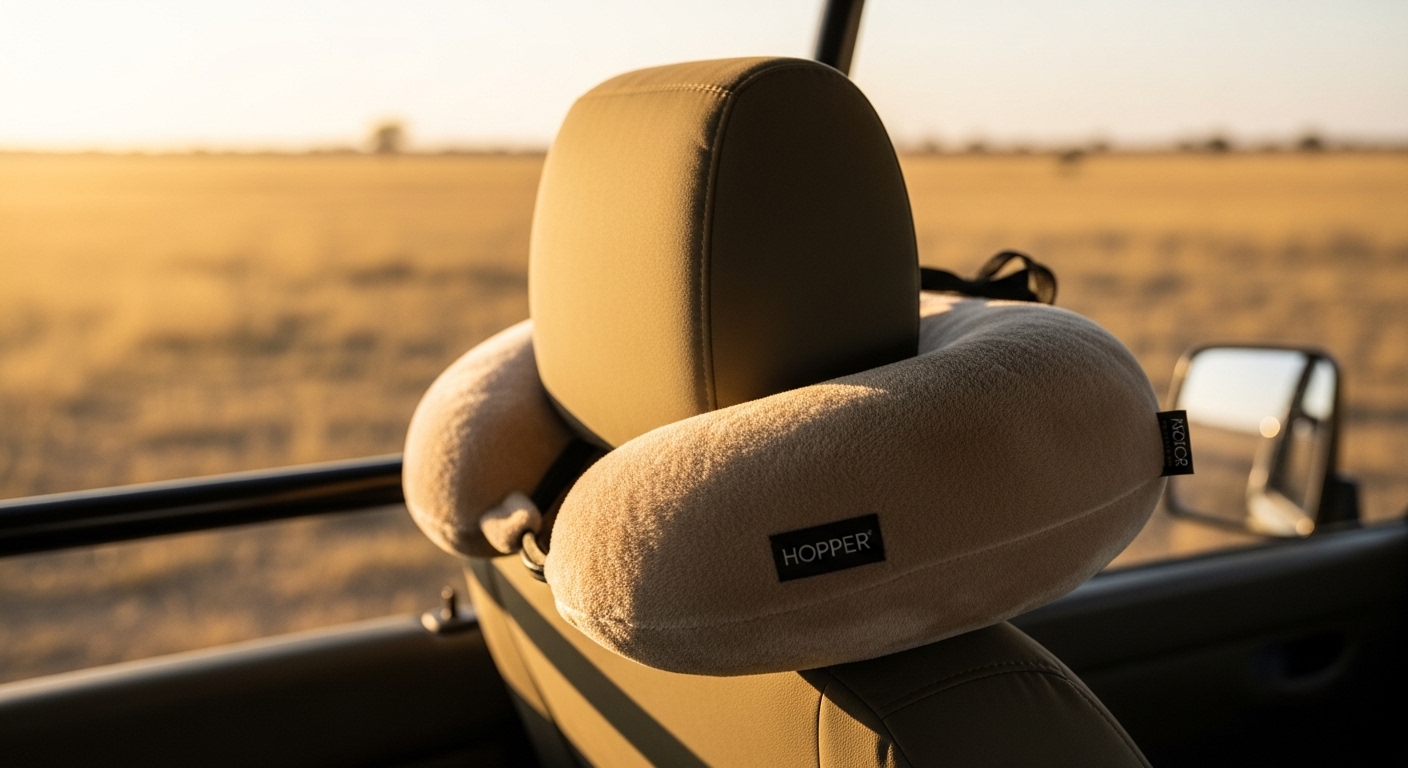
These extras aren’t must-haves, but they can make your safari experience more comfortable and enjoyable.
-
Travel pillow: Long game drives can be tiring. A good neck pillow will help you catch a nap without waking up with a crick in your neck.
-
Notebook and pen: It’s wonderful to jot down animal sightings, funny anecdotes, or reflections on your trip. Memories fade fast — writing helps keep them alive.
-
Lightweight travel blanket: Early mornings and evenings can be surprisingly cold. A compact blanket keeps you cozy in the vehicle or around the campfire.
-
Snacks: Energy bars, nuts, or dried fruit can keep your energy levels steady between meals and long drives.
-
Book or Kindle: Afternoons at camp can be quiet and peaceful — the perfect time to relax with a good read.
7. Luggage Tips – Smart Packing Makes Life Easier
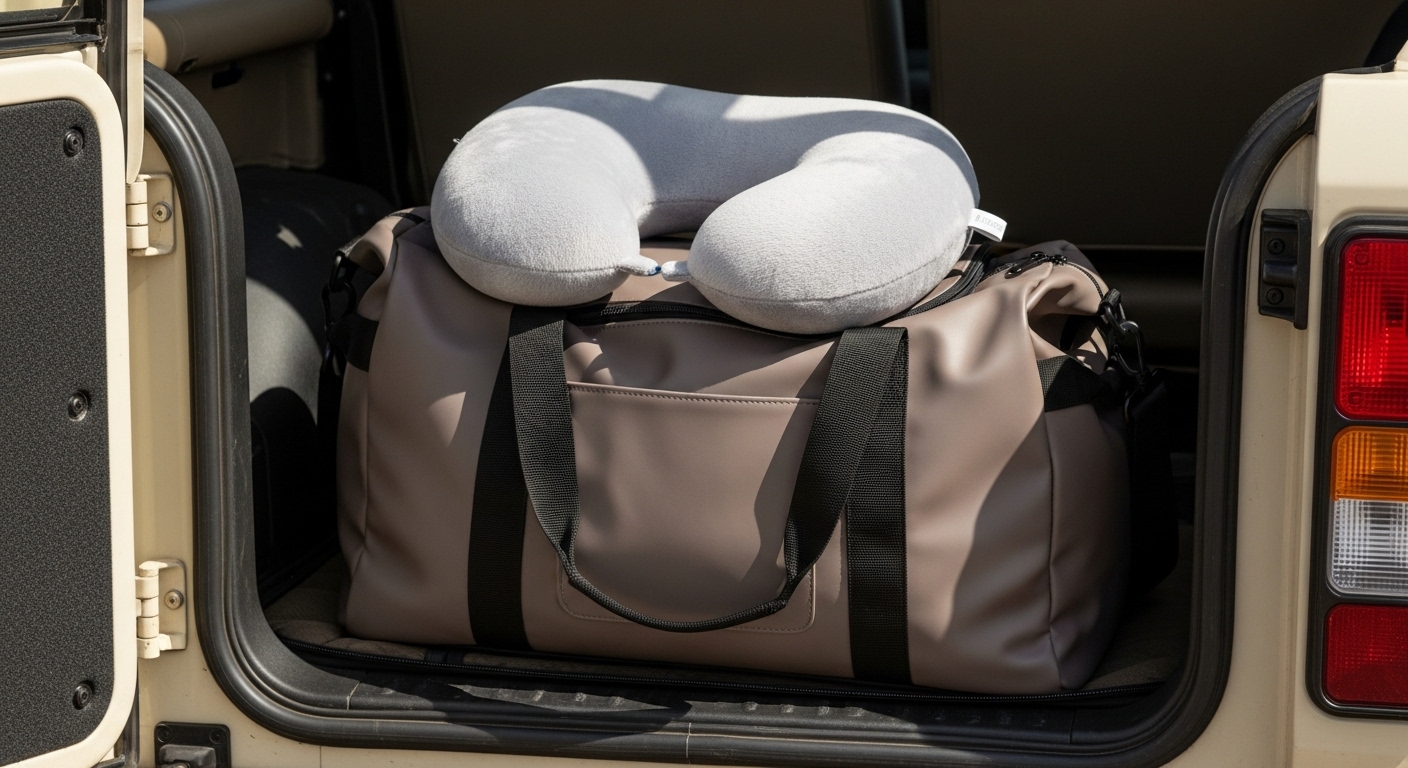
Safari vehicles and small aircraft aren’t designed for oversized luggage. Packing smart will save you hassle and headaches.
-
Soft-sided duffel bag: These are flexible and fit easily in jeep trunks and small plane compartments. Hard suitcases can be difficult to squeeze in and heavy to carry.
-
Weight limits: Some bush flights restrict checked and carry-on luggage to around 15kg total. Check your airline’s rules carefully and pack accordingly to avoid extra fees or having to leave things behind.
-
Packing cubes: Using cubes or organizers keeps your belongings tidy and makes it easy to find what you need quickly, saving time and frustration.
Quick Summary
| Category | Essentials |
|---|---|
| Documents | Passport, Visa, Insurance, Yellow Fever Card |
| Clothing | Neutral layers, hat, jacket |
| Footwear | Hiking boots, sandals, socks |
| Gear | Binoculars, camera, daypack |
| Health | Medications, first aid, sunscreen, insect repellent |
| Comfort | Pillow, snacks, reading material |
Our Final Words Are – Pack Smart, Enjoy the Ride
A safari is so much more than a trip – it’s a collection of breathtaking moments that will stay with you for a lifetime. Being well-prepared means you can savor every one of those moments without distraction or discomfort.
Take the time to pack thoughtfully. Bring the essentials, skip the unnecessary, and get ready for an adventure filled with stunning wildlife, incredible landscapes, and stories you’ll be telling for years to come.
And when you’re out there, the only decision you should be making is: do I look through my binoculars first, or capture this amazing scene with my camera?



